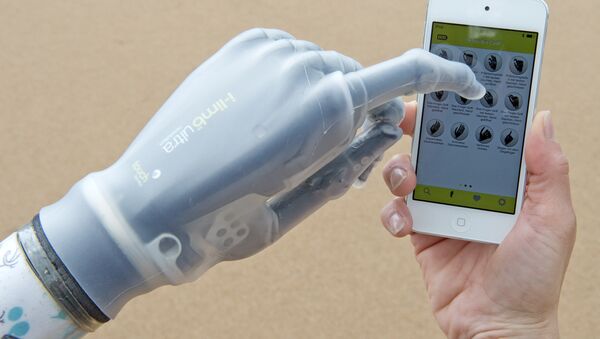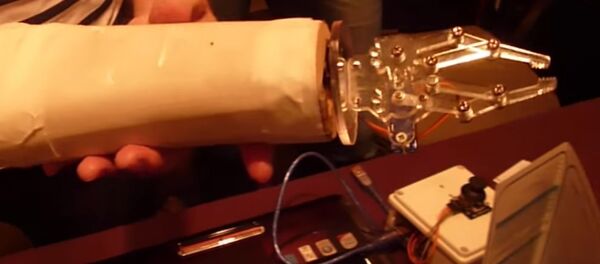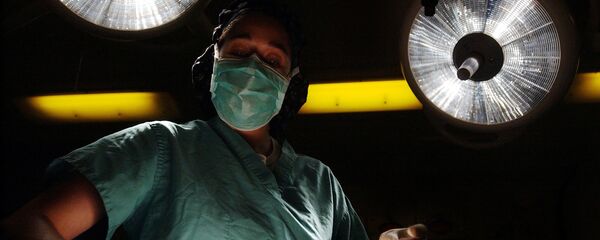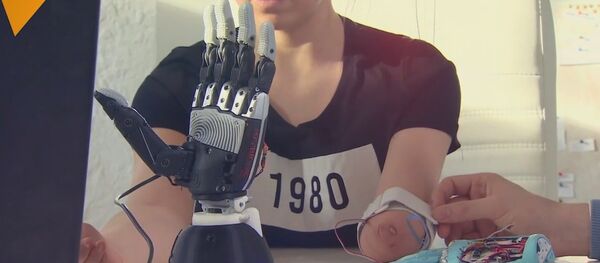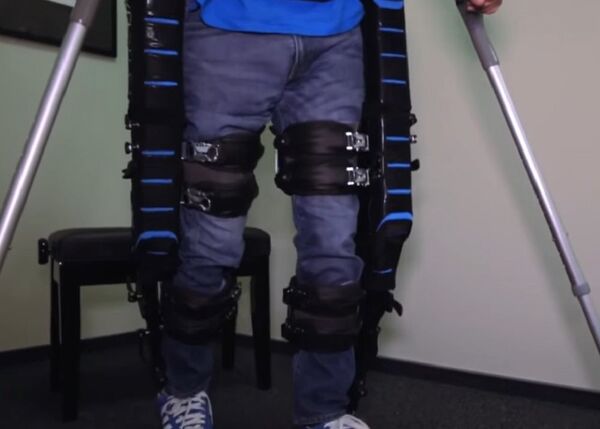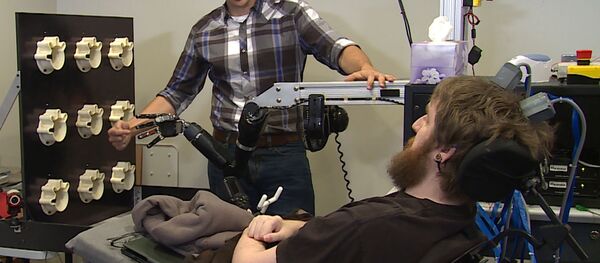Svetlana Churakova works as a journalist on television, goes in for archery, modeling and sitting volleyball and takes part in Cybathletics, Russia's first competition for people with high-tech prostheses. She has no issues with being called "disabled" or the black humor associated with this group of individuals. Sergei Rubinstein is a happily married businessman, involved in the testing of Russia's first exoskeleton, which he wears in the office, on walks and even on his wedding day. High technology is helping these people from the Russian city of Arkhangelsk to do what wasn't available to them just several years ago.
"Bionic Princess"
Svetlana was born with a diagnosis of "congenital absence of the right forearm," went to a regular kindergarten and school. As a child, she did not think there was "something wrong" with her, but that all changed in her adolescence.
"At the age of 17, I weighed 127 kilograms with a height of 196 centimeters — I just gave up on myself," she told RIA Novosti. "It seemed that the whole world hated me because I'm ‘not like the others.' My peers only fueled up this feeling: They threw stones at me and spat in my face, I was often pursued by companies taking pictures of me on their phones. Even in a laughing crowd, I can still recognize when people are laughing at me," she added.
"It's very annoying that all of my actions are perceived as an act of disobedience to society. For some reason, many people think that when I'm doing something, I'm trying to prove something, but it's not so," she admitted.
In Russia, all citizens with disabilities have the right to receive a technical means of rehabilitation at the expense of the state. It took Svetlana two years to collect all the required documents and assure officials that she actually needs a high-tech prosthetic hand.
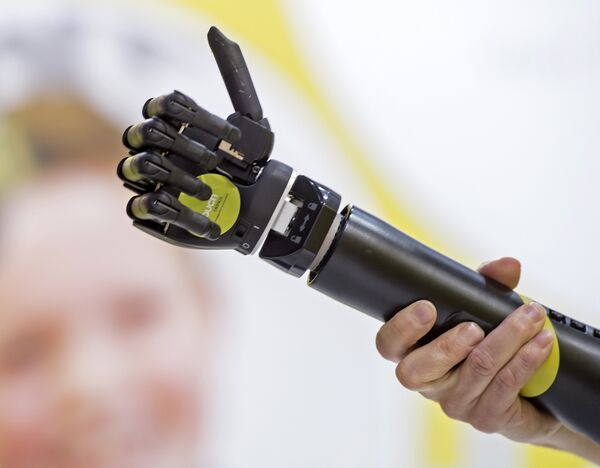
According to Svetlana, such an electronic hand is very helpful for people to maintain an active lifestyle. "My prosthetics technician scolds me, saying I have no mercy on my prosthesis. When its creators are fixing its breakdowns, they usually ask: ‘What did she do with it?!' Usually, people who received such prostheses, wear them as if they were made of crystal. And what do I do? I just live a normal life."
"Iron Man"
After an accident in December 2007, wheelchair-bound Sergei didn't know how to live with his trauma. For several years, the man followed the news about the exoskeleton development, and when it finally appeared in his city, he immediately offered himself as a "test pilot."
"At first people are skeptical about the exoskeleton, but when they start walking for the first time, they can't hide their emotions. Some are smiling happily, others start to cry. There was a girl who screamed in surprise. When a person does not move for a long time and then suddenly walks, it's amazing. This is another level of freedom," says Sergei Krenev, an instructor-methodologist in therapeutic physical culture.
Sergei Rubinstein does not only walk in the exoskeleton, but also climbs the stairs. The weight of the device is more than 20 kilograms. It can be operated from a tablet or a "smart" crutch.
Over time, this device should become a comfortable assistant in everyday life, he believes. For the time being, it is the only exoskeleton in the region, which was purchased by local authorities for scientific and clinical research.
Sergei tried to work while piloting the exoskeleton and even has become the first person in Russia to get married in it. "When I mastered the simulator, I realized it was no longer a problem for me to spend 1.5 hours in the church. As I offered my wife a religious matrimonial ceremony, I knew I could stand instead of sitting in a wheelchair," he told RIA Novosti.
Such rehabilitation is available in 16 regions of Russia. By 2021, there are plans to develop an exoskeleton for children. "The future has already arrived," said Sergei, "This simulator is very motivating, you start to feel differently about yourself. Today it's an opportunity to walk with its help, and tomorrow, maybe, it will be possible to walk independently."

